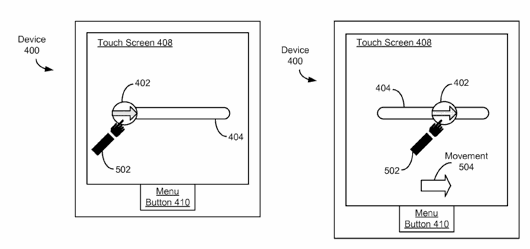In ultimele luni Apple a reusit sa scoata din vanzare produse ale Samsung si HTC, produse care ruleaza Android OS-ul dezvoltat de catre compania Google. Pentru ca deocamdata nu pot lupta cu Apple pe toate fronturile, cei de la Google sustin ca tehnologiile companiei Apple ar trebui sa devina tehnollogii FRAND, esentiale pentru industrie, si ar trebui oferite gratuit tuturor producatorilor. Tehnologia pentru multitouch, tehnologii Apple privitoare la comunicatiile 3G si alte tehnologii extrem de populare ale Apple ar trebui transformate in tehnologii FRAND, conform celor de la Google. Compania din Mountain View sustine ca aceste tehnologii sunt atat de populare incat oricine ar trebui sa le aiba gratuit, indiferent cine le-a dezvoltat, dezvoltatorii ramanand doar cu gustul amar al faptului ca munca lor este preluata gratuit de Google si alte companii.
While collaborative [Standards Setting Organizations (SSOs)] play an important part in the overall standard setting system, and are particularly prominent in industries such as telecommunications, they are not the only source of standards. Indeed, many of the same interoperability benefits that the FTC and others have touted in the SSO context also occur when one firm publishes information about an otherwise proprietary standard and other firms then independently decide (whether by choice or of necessity) to make complementary investments to support that standard in their products. … Because proprietary or de facto standards can have just as important effects on consumer welfare, the Committee’s concern regarding the abuse of SEPs should encompass them as well.
Desigur ca un avocat al Apple, care consiliaza conducerea in materia proprietatii intelectuale, sustine ca tehnologiile extrem de populare nu se transforma in mod neaparat in standarde, iar companiile care le dezvolta trebuie sa aiba dreptul de a le proteja si de a scoate bani de pe urma lor. El sustine ca tehnologiile standardizate permit interoperabilitatea intre terminale mobile, oferindu-le acestora aceeasi functionalitate de baza, iar restul tehnologiilor sunt dezvoltate pentru a diferentia prin functii terminalele mobile. Desigur ca tehnologiile Apple nu trebuie sa fie transformate in esentiale si adevarul este ca ar fi incorect ca o tehnologie Apple, implementata initial de catre companie pentru a se diferentia de altii, sa ramana a sa, atat timp cat ea nu este necesara pentru functionalitatea interoperabila unuia sau mai multor smartphone-uri.
The capabilities of an iPhone are categorically different from a conventional phone, and result from Apple’s ability to bring its traditional innovation in computing to the mobile market. Using an iPhone to take photos, manage a home-finance spreadsheet, play video games, or run countless other applications has nothing to do with standardized protocols. Apple spent billions in research and development to create the iPhone, and third party software developers have spent billions more to develop applications that run on it. The price of an iPhone reflects the value of these nonstandardized technologies — as well as the value of the aesthetic design of the iPhone, which also reflects immense study and development by Apple, and which is entirely unrelated to standards.
Desigur ca aceste dispute nu sunt benefice pentru utilizatori si nu vor avea o finalitate acceptabila pentru vreuna dintre parti, dar nimeni nu poate schimba ceva.






















